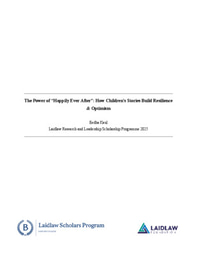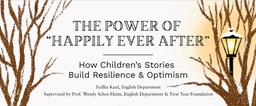Abstract
C.S. Lewis’s The Lion, the Witch, and the Wardrobe is a seminal children’s novel written in the aftermath of World War II, yet it culminates in a distinctly hopeful ending. This paper explores the psychological and literary significance of such endings in children’s literature, focusing on their potential to cultivate optimism and resilience in young readers during their early developmental stages. Drawing on a combined literary and psychoanalytical framework, including the work of narrative psychology theorists such as John McLeod, the study examines how happy endings function similarly to therapeutic resolutions—providing emotional reassurance, moral clarity, and imaginative models of empowerment. Through a close reading of Lewis’s novel and an analysis of character transformation, symbolic restoration, and narrative structure, this paper argues that happy endings do more than conclude a story—they equip children with tools to confront uncertainty, loss, and moral complexity in the real world.


Please sign in
If you are a registered user on Laidlaw Scholars Network, please sign in